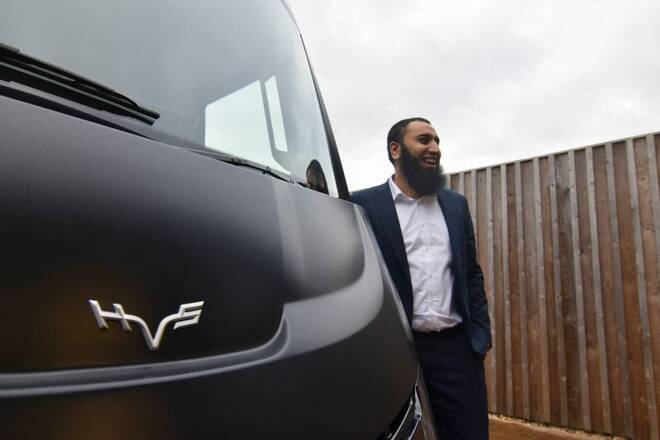Advertisement
Advertisement
Supermarket Asda, startup HVS receive UK hydrogen self-driving lorry grant
By:
By Nick Carey LONDON (Reuters) - A consortium including Hydrogen truck startup HVS and supermarket chain Asda said on Wednesday it had been awarded a 6.6 million pound ($8.1 million) UK government grant to develop autonomous hydrogen heavy goods vehicles.
By Nick Carey
LONDON (Reuters) – A consortium including Hydrogen truck startup HVS and supermarket chain Asda said on Wednesday it had been awarded a 6.6 million pound ($8.1 million) UK government grant to develop autonomous hydrogen heavy goods vehicles.
The project is one of seven backed by Britain’s Centre for Connected and Autonomous Vehicles (CCAV) to showcase the potential of self-driving vehicle technology and must demonstrate a sustainable commercial service by 2025.
Glasgow-based Hydrogen Vehicle Systems (HVS) leads the “Hub2Hub” consortium that will produce two prototype self-driving hydrogen fuel cell vehicles – one with a driver cab and one without – for testing starting in 2024.
The third member of the consortium is UK self-driving technology firm Fusion Processing.
“This project will feed back to the government’s understanding of what the legislation should be to introduce safe self-driving vehicles,” said HVS CEO Jawad Khursheed.
HVS has received around 52 million pounds in private and government funding, including 30 million pounds from British petrol station and food retail business EG Group.
Billionaire brothers Zuber and Mohsin Issa and private equity group TDR Capital own both EG Group and Asda.
HVS has developed a prototype hydrogen van. The startup’s head of design Pete Clarke said the self-driving heavy goods vehicle with a driver cab will be tested mostly on motorways with a human safety driver between Asda hub stores.
“We’re going to focus on… driving predictable routes that’s repeated and highly controlled as a good means of introducing this technology first,” Clarke said.
The self-driving vehicle without a cab will be operated on test tracks by a remote human driver.
($1 = 0.8121 pounds)
(Reporting By Nick Carey; editing by Barbara Lewis)
About the Author
Reuterscontributor
Reuters, the news and media division of Thomson Reuters, is the world’s largest international multimedia news provider reaching more than one billion people every day. Reuters provides trusted business, financial, national, and international news to professionals via Thomson Reuters desktops, the world's media organizations, and directly to consumers at Reuters.com and via Reuters TV. Learn more about Thomson Reuters products:
Did you find this article useful?
Latest news and analysis
Advertisement
